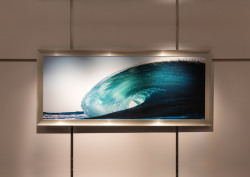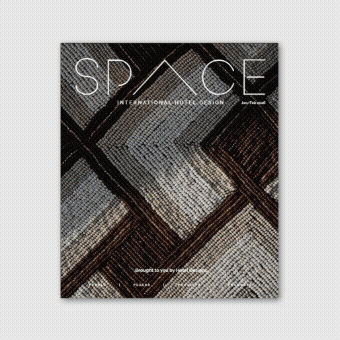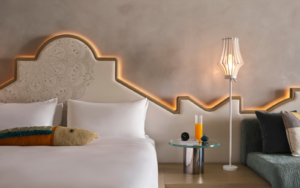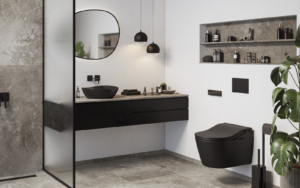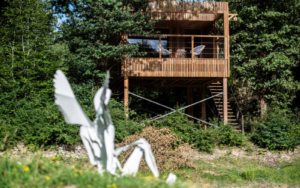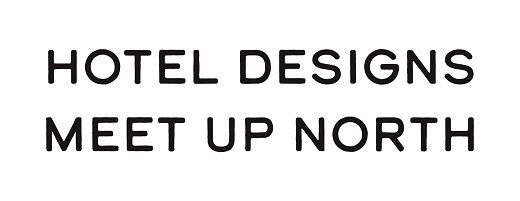In an age where technology seemingly saturates every moment, HKS Architect Kay Curtis foresees a much simpler future for luxury hospitality. Writing exclusively for Hotel Designs, the Brit List Awards’ 2024 Rising Star shares her design; where technology slips seamlessly into the background and the human touch returns to centre stage…
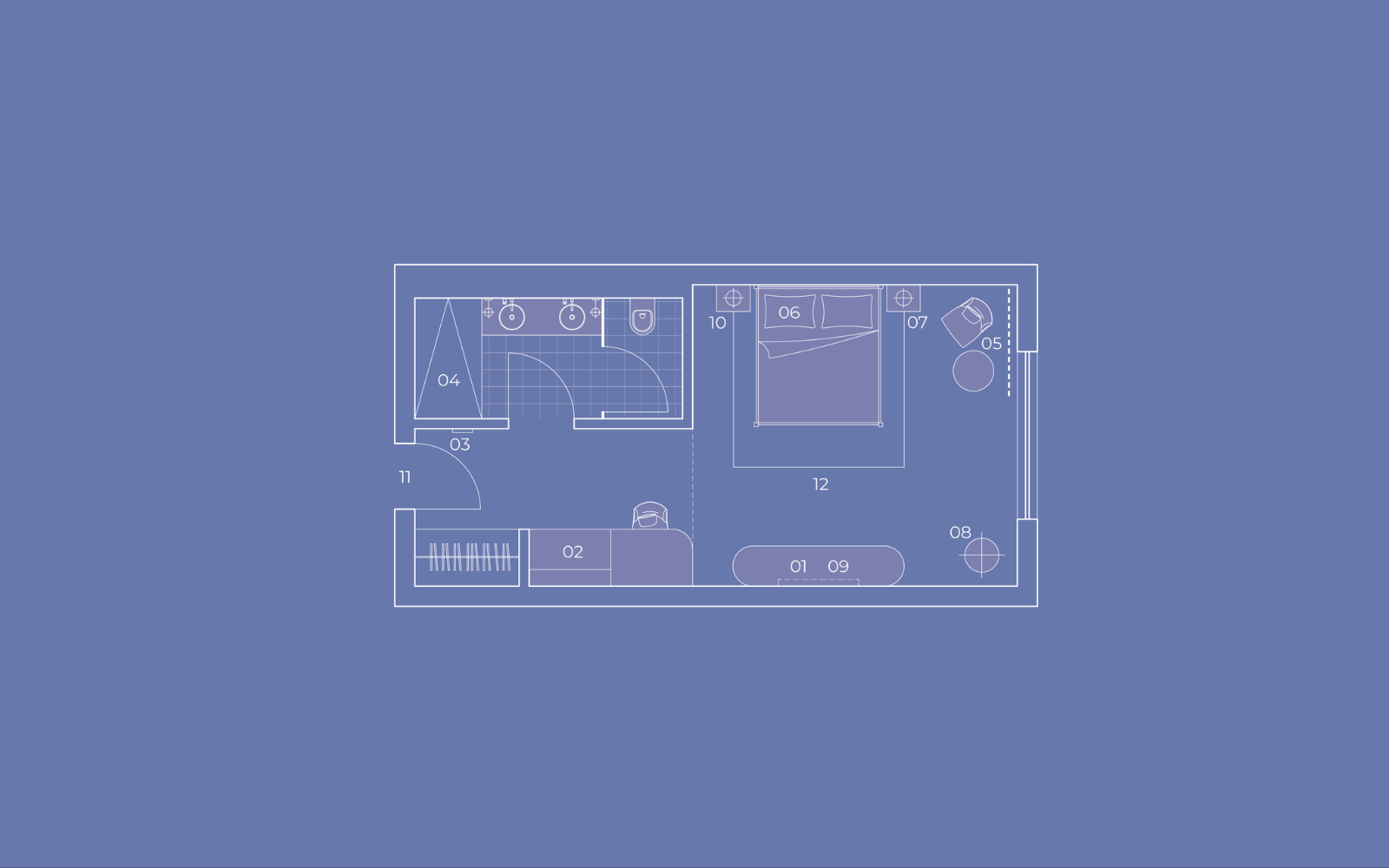
Trends have always reflected what separates the upper class from the masses. When labour was rooted outdoors, pale skin signified privilege; once work moved indoors, a tan became a marker of leisure and wealth. Fashion, cuisine, beauty, art, sport, and even architecture have all followed similar patterns — and now technology is entering the same cycle.
Until recently, having the newest iPhone or the biggest TV has been a form of status symbol. Now, however, iPhones can be found in every corner of the globe. Screen technology is much cheaper, allowing the middle class to fill their living room walls with what was once only found in the wealthiest of homes.
Screens are no longer a leisurely escape from our everyday lives, now we can’t escape them. We are tied to screens for 8 plus hours a day for work. We rely on apps for everyday activities such as checking train schedules or checking out at the grocery store. We want to disconnect, but we also want to keep the ease that technology brings to our everyday lives.
Enter ‘quiet technology‘. Like fashion’s ‘quiet luxury’, it favours quality and refinement over display — supporting an effortless, hyper-personalised lifestyle without the need for flashy screens or constant input. We’re already seeing this shift in wellness: smartwatches replaced by subtle rings, workout videos hidden within mirrors. But what does this mean for luxury hospitality — and the way we design our hotels?
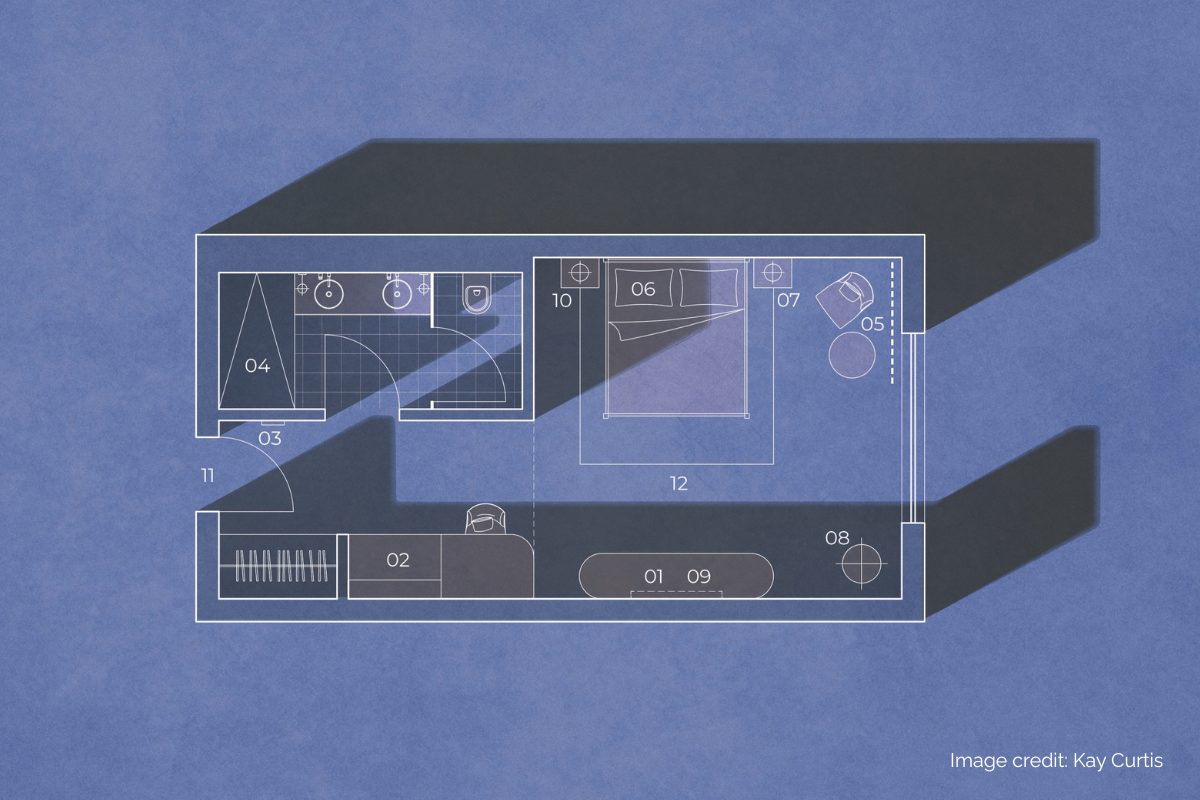
01 TVs will be disguised as artwork, mirrors, or projectors. 02 Mini-bars will come prestocked with customised offerings – does the guest have a favourite beer, or do they like to try the local craft brew? 03 Thermostats and complicated lighting panels may disappear in favour of smart systems that anticipate guest needs and offer voice-activated overrides. 04 Water temperature, pressure, and settings will match guest preferences from previous stays. 05 Curtains will automatically open and close according to guest preferences on natural light and sleep schedule to support guest schedules and circadian rhythms. 06 Guest preferences such as pillow selections and scents will be pre-placed by housekeeping during room turnover based on preferences and algorithms. 07 Phones, tablets, and touch control systems will disappear in favour of conversational voice-activated AI agents. 08 Lighting will have more options and control points over colour and brightness. 09 Television guides will automatically suggest programmes based on guest preferences. 10 Charging and outlets will become wireless and fully integrated into furnishings. 11 Key cards and app-based entry will be replaced by facial recognition. 12 Algorithms will create personalised insights and suggestions to support hotels in creating memorable surprises that are tailored to each guest to go the extra mile.
1. Technology will be used to enhance the human touch
Hospitality, especially luxury hospitality, has always been about the human touch. Operators quickly found out that replacing staff with iPads at the check-in desk was not the future of our industry. As we think about the future of hotels, we must think about how technology can be used to enhance the human touch.
The advent of artificial intelligence (AI) offers many opportunities for brands to tailor their offerings uniquely to individuals and provide unparalleled service. Hotels already use the accessibility of data to learn more about their guests – some offer preferences in-app or track previous purchases and activity during stays. On the upper end of the industry, brands like Cheval Blanc comb through social media profiles and question travel agents to gain a deeper understanding of their clients in order to provide bespoke experiences. Artificial intelligence can help to streamline data collection processes and provide deeper insights based on algorithms.
By leveraging technology in the background, hotel staff can be more present in the foreground, focusing on going above and beyond basic needs and expectations – I think back to the scene in the tv show The Bear, where Richie makes it snow outside of the restaurant for a guest who is celebrating her cancer remission. Technology can help reduce the workload of tracking and interpreting guest preferences and profiles, so that hotel staff can focus on creatively finding a way to make it snow for every guest.
This will not only allow staff to focus but reduce the presence of tech interfaces on the guest side. For example, many hotels offer pillow menus for guests to choose from during their stays. While this offering displays a hotel’s dedication to providing options for guests to customise their stays, guests are beginning to fatigue of filling out app signups, online profiles, and preference forms. Where a single ‘pillow menu‘ may be a unique way to show guests you care, as the options for customisation add up, they create too many decision points and no longer does a guest have an effortless experience. Background integration of AI to track and predict guest preferences can reduce the work on both sides of the check-in desk by providing tailored ‘menus’ for housekeeping to stock each guests’ preferred pillows, linens, toiletries, and mini bars.
2. More elements will be automated, but less will appear so
If you ask AI to imagine a futuristic guestroom, it’s full of screens, neon lights, and robots. Quiet technology challenges this vision of the future of design – while technology will be more present in our spaces, its presence will be invisible.
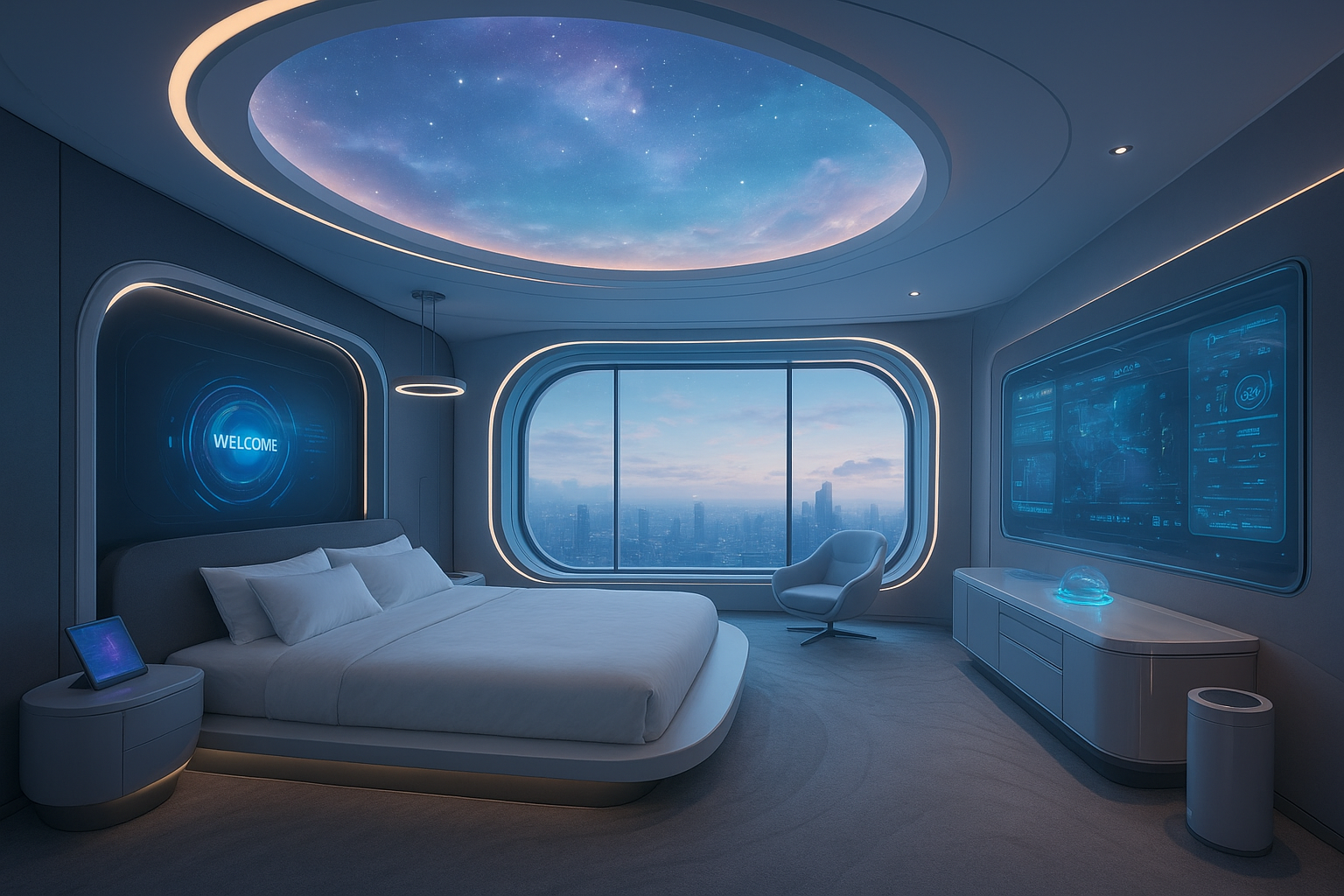
Image created by ChatGPT with the prompt: create an image of what the ultra-luxury guestroom of the future will look like | Courtesy of Kay Curtis
There isn’t a key card or a pin code to open the door; it just welcomes you inside while keeping the drunk guy who got the room number wrong out. Gone are the confusing touch screens that control the lights and curtains at the same time – now, the curtains know you’re waking up at 7am and prefer to be gently woken by the sun. Or, they know you’ve had a late night and will not be happy if the room has the slightest ray of light before 1pm. Of course, there’s still a rod to open them in case they’re wrong. The shower knows you like it piping hot through the rain head, so the controls start at your preferred temperature, and you can adjust from there. The kettle starts boiling when you’re halfway done with your shower. The first channel on the TV guide is the closest local equivalent to your favourite (Food Network) back home. No more skipping through fifty channels you don’t recognise to find something you would reasonably watch. Your needs are anticipated without having to open an app or press a button, but there’s always an override in the case you’re in the mood to do something different today.
A word of caution – while most people today have accepted some amount of privacy breach for convenience, not all guests will be comfortable with it. Providing a clear and easy way to opt out of these services is part of the service itself.
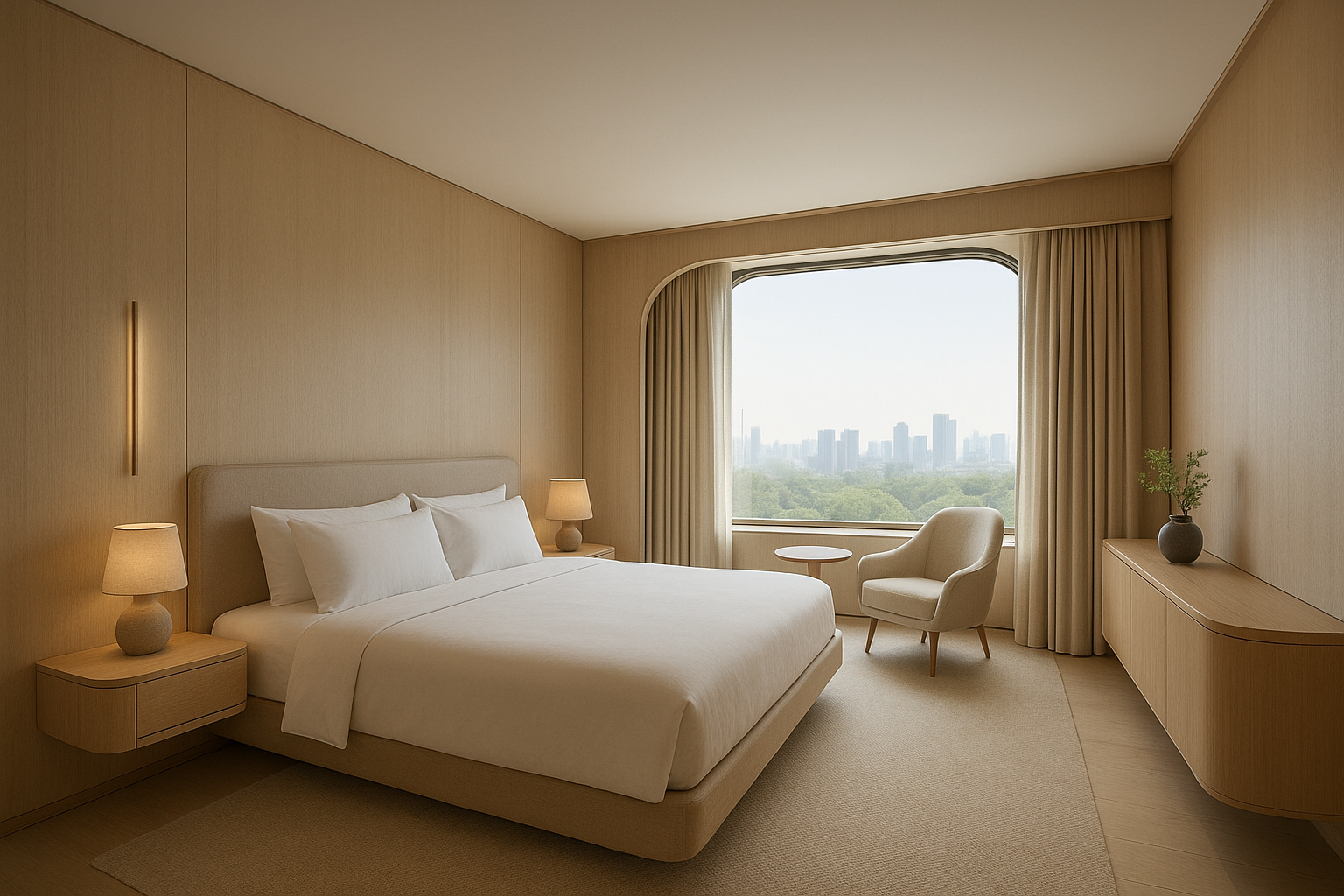
Image created by ChatGPT after the idea of quiet technology has been described, followed by the prompt: create an image of what the ultra-luxury guestroom of the future will look like | Courtesy of Kay Curtis
3. Quiet technology will force ultra-luxury brands to find a new differentiator
While quiet technology is currently at the beginning of its era, the rapid innovation of AI and technology in today’s world means it’s only a matter of time before it becomes accessible. Ultra-luxury brands that have excelled at providing this personalised touch without this technology will find themselves first benefitting from a streamlined process but soon will find themselves seeking a new way to differentiate themselves from the mainstream market. When everyone can offer top-notch service and personalised experiences, what will define luxury hospitality next?
Main image credit: Kay Curtis









